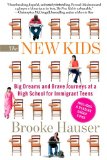Published on Thu, Feb 02, 2012
Kansas Secretary of State Kris Kobach, architect of some of the most controversial anti-illegal immigrant state laws, now is fighting a proposal in his own state that would allow undocumented immigrants to work in hard-to-fill jobs.
The proposal, by business groups, calls for undocumented immigrants to be able to remain in Kansas if they work in jobs in agriculture and other industries that are struggling through labor shortages.
Kobach, a former law professor who helped draft tough laws against illegal immigration in Alabama and Arizona, is denouncing the new Kansas proposal as "amnesty" for people who've come to the U.S. illegally. A spokeswoman said Gov. Sam Brownback, a fellow Republican, isn't supporting the measure.
But Brownback's agriculture secretary has acknowledged having several conversations with federal homeland security officials about potential labor shortages. The coalition pushing the new program includes agriculture groups with memberships that traditionally lean toward the GOP, as well as the Kansas Chamber of Commerce, another stalwart supporter of conservative Republicans.
Utah has a guest worker program, but it isn't set to start until January 2013, and its enactment was part of a legislative package that included initiatives in line with Kobach's thinking on immigration. States with large populations of undocumented immigrants -- including California, Florida and Texas -- don't have their own programs.
The Kansas proposal was described as "unprecedented" by Wendy Sefsaf, director of communications at the American Immigration Council.
State officials and supporters of the business groups' plan don't yet have hard numbers on how many jobs are in danger of going unfilled, but unemployment rates in the western half of the state were mostly less than 4 percent in December, well below the statewide figure of 5.9 percent.Read more...
Published in the Fox News Latino





